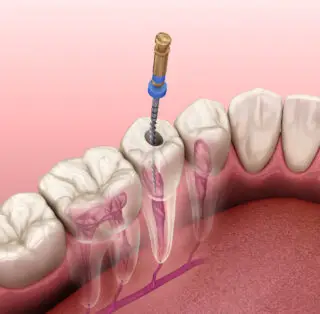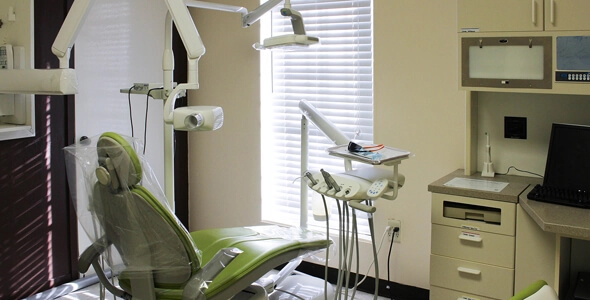Your teeth have multiple layers on them. It starts with the enamel layer on the outside, the dentin comes next, and the core that is soft from the inside extends into the jawbone roots. The soft inside core contains the dental pulp which consists of connective tissue, nerves, and blood vessels. Therefore, it is when the tooth decay reaches the soft core; the infection and inflammation of the pulp starts. Worst case scenario—necrotic. This is when you need a root canal to clean the decay from the root and pulp.
Although there are a lot of other dental procedures to clean and treat your teeth; a root canal is the only procedure that would clean your teeth from within.
The root canal procedure includes extraction of decay and bacteria from the tooth pulp, nerve, and root; it’s safe to say that problem is deep-rooted. Along with that during a root canal procedure, the endodontist disinfects the infected area with antibiotics, fills the empty roots, and seals the area to prevent the decay from occurring again.
So what are the tell-tale signs? How do you know if you need a root canal?
- Although the reason could be cavity or gum disease, a common sign for a root canal is persistent pain in the bone of your tooth; to an extent that you may feel it in your face and jaw.
- Excessive sensitivity to hot and cold food items. The sensitivity could range from a dull ache to sharp pain. A clear indication of infected blood vessels or nerves.
- Swelling in gums is normal but swollen, tender gums that are sore and painful are a sign of bigger problems. Pain, especially on touch or while eating, is an indication of consulting a dentist.
- Discolored tooth.
- Sensing a rotten taste in your mouth.
- Other reasons could be loose, chipped, or cracked teeth.
What to know or do before your Root Canal Procedure?
First of all, a root canal procedure would go on for a few hours so it is going to be challenging for some to sit for hours with their mouth open. It would be best to pre-download audiobooks, podcasts, or a long playlist of your favorite songs.
The procedure starts with the removal of the infected or inflamed pulp by shaping and cleaning out the inside of your tooth. Later, the area is filled and sealed. Next, dental crowns would be placed on the teeth for protection.
Questions to ask before the root canal procedure
- Is it necessary in your case?
- What are the other options?
- Will the treatment affect other teeth?
- What if you don’t wish to opt for a root canal treatment?
- What are the other ways of recovering the truth?
Preparing for a root canal treatment
- Although, it is said to not take medication before the procedure. The Best Dentist in Houston beg to differ; a dental care gulfgate always advise their patients to take ibuprofen, preferably, a few hours before the procedure. It helps ease the inflammation and swelling post-treatment.
- Normally, it is advised to not eat anything before dental procedures and routine check-ups. However, it would be best to not go on an empty stomach before root canal treatment as your mouth may feel a bit numb a few hours after the procedure.
- Avoid alcohol and tobacco 24 hours before the treatment.
- Get a full night’s rest before and after the procedure. The real repair and recovery begin when your body feels rested.
The Bottom Line
It is tough to decide whether or not to get a root canal treatment done. It would be best to make the right choice by consulting your dentist. A root canal session, no matter how uncomfortable, would only protect you from teeth from deteriorating.













